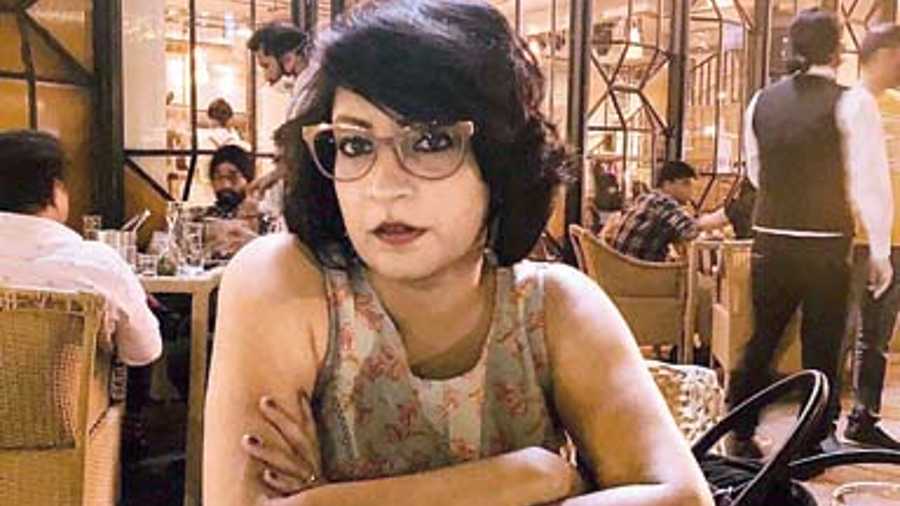In the ‘Grievances & Requests Corner’ of my study, the Jar of Jabber is half full. Neat chits scribbled with thoughts, demands, SOS needs, just-sayings keep piling up. Mail is picked up once a day — usually at midnight. Delivery date or grievance redressal timeline remain, however, fully open-ended. A variety of sulks, whines, groans, grouses, and grumbles are bottled — hermetically sealed, suffusing my day with an eiderdown of fluffy silence. Silence fresh as spring. The rule is simple: Any sentence that starts with Mamma (and every sentence does), you write that down and put it in the Jar. This Jar of Jabber is a clever improv. It is a safety valve that is quelling my irresistible urge to leave, to join the massive tribe of mothers-who-have-left.
My first destination was going to be Svalbard, the Norwegian archipelago on the fringes of Artic. While my plans are on hold, what with rumours of a fourth wave, the Jar of Jabber is gifting me patches of Artic-like silence. For a month, as dictated by the Treaty, I will not be stopped in the midst of a heated work conversation to give an urgent statement on ‘why most kids use Discord but I am not allowed’. An avalanche, whistling and hurtling down a steep slope, will not cause me to hit the mute button on Zoom, just when I am loving the sound of my raspy Omicronish voice. At the crescendo of a presentation, when I have the audience spell-bound by my turn of phrase, I will not take a tumble like the poor unfortunate Beverly Zhu. Jar of Jabber will let me perform perfect eights and jumps on black ice.
It all started a few weeks ago when I chanced upon the latest Netflix rage, The Lost Daughter, a film based on Ellen Ferrante’s book of the same name. Directed by Maggie Gyllenhaal, starring the incomparable Olivia Coleman, The Lost Daughter situates maternal guilt as the one crisis that cannot be explained by karma or any other cause-effect shenanigan. It is a condition that is chronic and cannot be cured. Leda, a professor of repute, is holidaying in Greece all by herself. She seeks out the sun, observes the drink boy, has a tonne of reading to finish. It seems like a holiday well-earned when the passionate absorption of a young mother, Nina, played by Dakota Johnson, with her cute little three-year old daughter, throws Leda into a hallucinatory haze. In snatches we see her younger self — a brilliant academic suffocated by the demands of children. A talented linguist who is also acutely aware of her name’s poetic and mythological burden, Leda spends her days tending to a wailing toddler and sibling rivalries, a constant tussle as life passes by. We want you Mamma! We want you now! We want you every minute of the day! Pushed over the brink, Leda leaves — she packs up and goes away, telling her lisping little one, ‘Mama will be gone for a while.’ The time she spent away from her children, she later confesses, was delicious: ‘I was happy.’
Simple and unambiguous. Yet the guilt of going away never leaves her. The lingering trauma controls Leda and she describes herself as an ‘unnatural mother’. Until the end of the film, we are not sure if she has done worse. Did she ever come back? Were her daughters lost? What unspeakable guilt could have pushed her to that perverse and dangerous edge while holidaying in Greece?
Leda peels an orange for her daughters. They chant together, ‘peel it like a snake/don’t let it break’. These rituals and pretend-plays fill up her life and have more agency than the opportunities that await in the world of classics for this gifted translator.
When I was a child, my mother, a Leda who never left, peeled for me, Tolstoy, Dostoevsky, and Chekov. On double-decker buses meandering through the streets of Calcutta, she pared the deliciously corrupt and grown-up rind of Anna Karenina. Anna was to me a person my mother knew, someone who had chosen an ‘unnatural life’ and as a result suffered painfully. On one of my post-motherhood night vigils, when I came back to Anna, I saw her sense of futility and disillusionment differently. But what also dawned on me was the realisation that Anna Karenina was a life buoy that my mother caught at. A young mother, who had only recently read Comparative Literature at the university, talking about Anna was not so much about imparting stories to her child, but the space she created for herself while caring for me, where art school duty and fussy mealtimes could co-exist with the Russian novel.
I am a Leda too, but I don’t have the courage to walk away. Nor do I have a navigation chart once I get off the ship. So, I haven’t left. At least not yet. Instead, I have convinced myself that there are other forms of leaving — like the emptying of an afternoon, unattending a parent-teacher meeting, letting algebra take a back seat, not opening the door. The Jar of Jabber is a first step — it is helping me slowly reclaim some of the space and silence I have lost. What will this be like, this era of downy silence? Will I finish my novel at jet-speed? Will I dart up the professional ladder at a lightening pace, compensating for the time I went AWOL? After years of being constantly talked to, across doors, in my sleep, mid-meeting, mid-thought, mid-bath, what will a semblance of silence feel like?
Eleven years since I signed up for mothering, of which seven years I have done that job twice over. If women counted, the correct answer for that would be 11+7+11= 29 years. (Go figure!) Having lost close to three decades of my chance at anything worthwhile — wandering artist or a big-shot policy diplomat, I find myself considering the pros of this shrewdly negotiated silence. Since, every demand or stray thought must be handwritten, for my seven-year-old that’s a tick on to-do-today for spelling, punctuation, sentence construction. Well played, I think. But the jar is filling up too rapidly. It is being treated like kingdom-come, an unseasonal Santa visit: Cutmynails, mynightpyajamasareloose, playdatewithAditya, Didiisabully. Dosomething, CanIbakeacake? WhatwillIdonow? WhatelsecanIdonow? and a dozen Youneverlisten! The stream of consciousness is flowing over. My cornflower blue sky is short-lived for I see thunderclouds gathering in the horizon. But while it lasts, it is a sweet ode to Leda and the art of leaving.

The author is a writer with a day job in global policy










